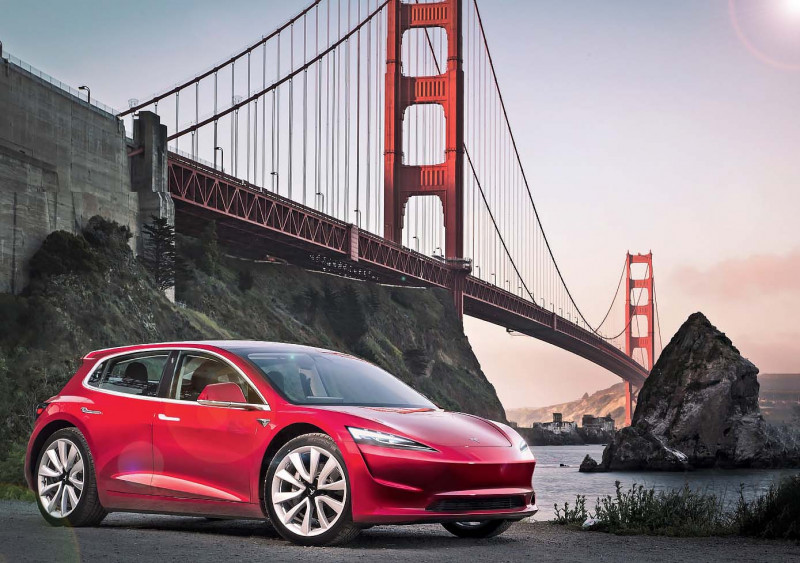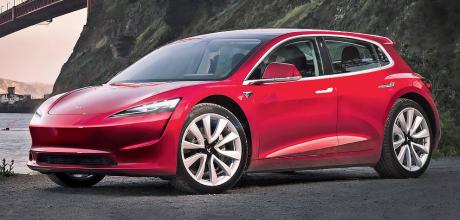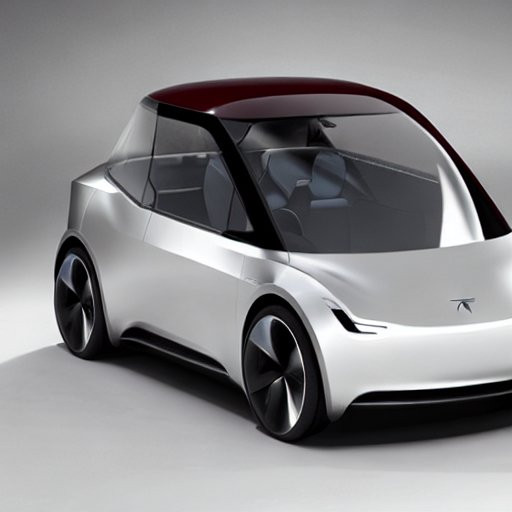2025 Tesla ‘Model 2’ Plus other highlights from big event
Radical rethink on production for baby Tesla. Entry-level model to benefit from new platform and bold low-cost production
Tesla’s keenly anticipated 2023 Investor Day event was uncharacteristically short on game-changing announcements and new-metal unveilings, but it did provide a first look at important new production processes – and confirmed that a new electric car platform is inbound. Taking to the stage at the Texas Gigafactory to give Tesla stakeholders, fans and owners a wide-reaching update on the company’s strategy, CEO Elon Musk was expected primarily to outline a long-mooted new platform that is tipped to underpin an ‘affordable’ entry-level car sitting beneath the big-selling Model 3 saloon.

As it turned out, Musk was less focused on showing new vehicles than he was in recent years, with the Cybertruck, Roadster, Robotaxi and Semi still yet to enter production (or volume production) several years after announcement. Investors didn’t take kindly to the dearth of product announcements, which caused Tesla’s value to dip 5.9% the day after the presentation. Instead, Musk outlined his vision for a cleaner global economy in the post-ICE age.
Musk said: “There is a clear path to a fully sustainable Earth, with abundance.” He added that this can be achieved without “austerity” and predicted that “an electrified economy will require less mining than the current economy”.
The all-out switch to electric road vehicles will cut fossilfuel usage by 21%, according to Tesla. Musk said: “All cars will go to fully electric and autonomous. Driving a nonautonomous [ICE] car is going to be an allegory for riding a horse and using a flip phone.”
He spoke of the need for a massive increase in battery production and storage capacity – the latter of which he estimated the world ultimately needs 240TWh.
“This is a lot of batteries but a very achievable amount,” he said, explaining that the tally included batteries both in and out of electric cars, at a ratio of around one to eight.
His battery ambitions are in line with a conviction that “as we improve the energy density of batteries, you will see all transportation go fully electric”. He also condemned the potential for other fuel types to transform the mobility industry, saying: “Hydrogen will not be meaningfully used in transport.”
Simpler production process
Tesla engineering boss Lars Moravy said the Model 3 “landed us in production hell” with delays and obstacles throughout the construction process hampering its roll-out. But now, new methods of vehicle production, first explored in development of the angular, unpainted Cybertruck, are touted as allowing a 40% reduction in factory footprint, cost savings of up to 50% and a drastic reduction in the risk of delays at each stage of the production line.
Fundamentally, Tesla will look to minimise the amount of work needed at each stage of the process. For example, the seats will be mounted directly to the under-floor battery pack, with the entire unit then raised up into a bodyshell that has been painted in sections to avoid the need for door removal and re-installation.
The new model is, essentially, centred on “only doing things that are necessary” – which means avoiding any unnecessary movement or disassembly of the car or its components during its journey down the line. Moravy said today’s established mass-production processes are based on those pioneered by Henry Ford. “It’s hard to change the car production process after 100 years,” he said.
New platform for cheaper EV
Details of the next Tesla car have been kept largely under wraps, with Moravy going only so far as to confirm “it would not be a Model Y” that benefits from the outlined production advances, as was depicted in an illustration that showed the innovations.
Tesla design boss Franz von Holzhausen said details of the firm’s next car (widely anticipated to be a more affordable model to sit below the Model 3) will come “at a later date”. It is likely to be the first Tesla produced at a new factory in Monterrey, Mexico.
Musk revealed his post-ICE global vision at Investor Day
Tesla estimates that its new platform will reduce construction cost per vehicle by around $1000 (£830), which should translate into a tangibly lower price point for consumers. Notably, Tesla will face fierce global competition from the likes of Volkswagen, Renault, MG and various Chinese manufacturers – which have confirmed plans to launch electric vehicles priced more in line with today’s more affordable combustion cars.
New car is tipped to slot in below the Model 3 and be more ‘affordable
Production advances mean fewer assembly steps for new platform
Tesla estimated the size of key global sectors after a 100% EV shift
Ambitions for new platform bring many potential benefits
























